#chilean poets
Text
Porque la nada que está en todo
igual que los siglos en los siglos
se ocultaba incluso en aquellos encuentros en los que nunca estuviste
y en los que habrías estado si las cosas fueran reales
si no desaparecieras a cada momento
preso de aquello que hay entre la noche y el tiempo
gran desierto de tu oscura inexistencia.
Translation:
because the nothingness that is in everything
the same as centuries within centuries
hides itself even in those encounters in which you never were
and in which you would have been if things were real
if you did not disappear at every moment
prisoner of that which exists between night and time
great desert of your dark non-existence.
— Rodrigo Arriagada-Zubieta, 'Extrañeza'
#rodrigo arriagada-zubieta#latin american poetry#chilean poets#spanish language poetry#existential poetry
0 notes
Text

Victor Jara in 1971
131 notes
·
View notes
Text
For me, writing is a way of returning to a place I’ve never been and don’t know.
Alejandro Zambra, Chilean Poet (translated by Megan McDowell)
56 notes
·
View notes
Text
They will tell you nothing / worse about me, my love, / than what I told you. / I lived in the meadows / before I knew you / and I did not wait for love but lay / in ambush and jumped upon the rose.
-The Captain’s Verses (1952) by Pablo Neruda
Ode and Burgeonings/Oda Y Germinaciones
#pablo neruda#1952#the captain’s verses#love poems#chilean poetry#nobel prize#poetry#words#quotes#20th century poets#20th century poems#los versos del capitán
10 notes
·
View notes
Text

shitty shitty poet trying his best
#my art#chilean poet#poeta chileno#READ IT#alejandro zambra#why do i keep making fandomless book fanart
10 notes
·
View notes
Text
Puedo escribir los versos más tristes esta noche.
Escribir, por ejemplo: «La noche está estrellada,
y tiritan, azules, los astros, a lo lejos.»
El viento de la noche gira en el cielo y canta.
Puedo escribir los versos más tristes esta noche.
Yo la quise, y a veces ella también me quiso.
En las noches como ésta la tuve entre mis brazos.
La besé tantas veces bajo el cielo infinito.
Ella me quiso, a veces yo también la quería.
Cómo no haber amado sus grandes ojos fijos.
Puedo escribir los versos más tristes esta noche.
Pensar que no la tengo. Sentir que la he perdido.
Oir la noche inmensa, más inmensa sin ella.
Y el verso cae al alma como al pasto el rocío.
Qué importa que mi amor no pudiera guardarla.
La noche está estrellada y ella no está conmigo.
Eso es todo. A lo lejos alguien canta. A lo lejos.
Mi alma no se contenta con haberla perdido.
Como para acercarla mi mirada la busca.
Mi corazón la busca, y ella no está conmigo.
La misma noche que hace blanquear los mismos árboles.
Nosotros, los de entonces, ya no somos los mismos.
Ya no la quiero, es cierto, pero cuánto la quise.
Mi voz buscaba el viento para tocar su oído.
De otro. Será de otro. Como antes de mis besos.
Su voz, su cuerpo claro. Sus ojos infinitos.
Ya no la quiero, es cierto, pero tal vez la quiero.
Es tan corto el amor, y es tan largo el olvido.
Porque en noches como ésta la tuve entre mis brazos,
mi alma no se contenta con haberla perdido.
Aunque éste sea el ultimo dolor que ella me causa,
y estos sean los últimos versos que yo le escribo.
-Pablo Neruda.
#argentina#mejor pais del mundo#amor#poesia#poems#poem#poetry#poets on tumblr#julio cortazar#pablo neruda#chilean#argentinos#so sad#sad poem#invierno#buenos aires
3 notes
·
View notes
Text
THE WOLF HOUSE:
A modern fable
Told using paper mache
Woman trapped in house
youtube
#the wolf house#random richards#poem#haiku#poetry#haiku poem#poets on tumblr#haiku poetry#haiku form#poetic#chilean#Amalia Kassai#Rainer Krause#Karina Hyland#Carlos Cocina#Natalia Geisse#Carlos Vasquez#Javiera Ramirez#Joaquin Cocina#Cristobal Leon#Alejandra Moffat#Youtube
2 notes
·
View notes
Text
The Hidden Pagodas - by Vicente Huidobro
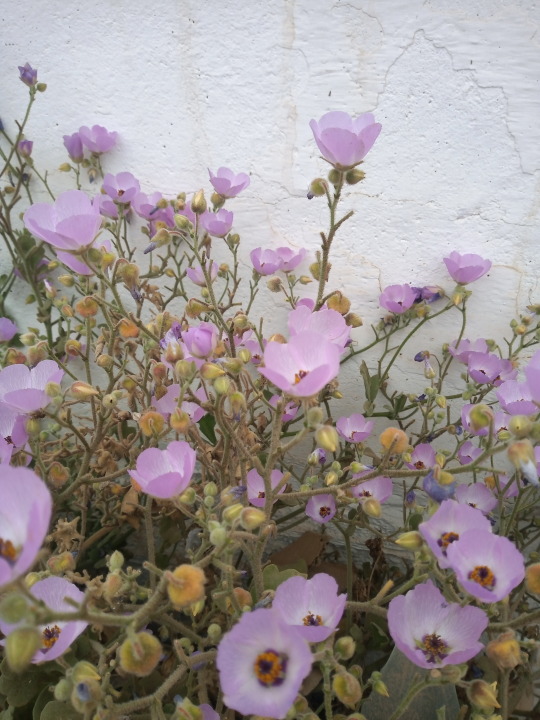
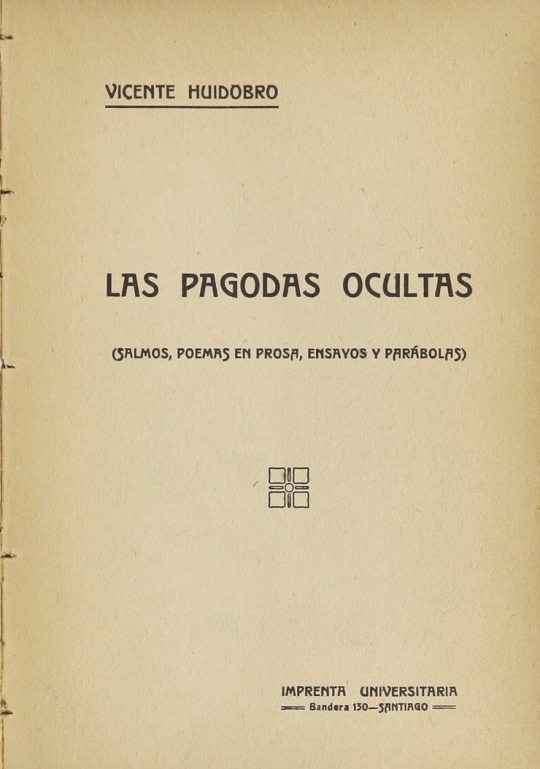
To the sister of my spirit,
she who when I speak takes the attitude
of children when listening to
a miraculous legend.
V.H.
Oh Soul of mine! gather in yourself and do not look any further on the enigmas of life in the midst of bustle, come to Silence.
The souls are mysterious and Hidden Pagodas whose solitude is full of worlds and possess strange resonances.
These are Hidden Pagodas in which very tiny gestures dwell, barely perceptible, but only to rise above all those which appear grand to the mind. Over the strongest passions in life these gestures show and excite themselves and are annunciations of superior things.
Soul of mine, penetrate fearlessly into the Divine Pagoda, the moonlight that enters through the door will keep you company for a few steps; where her domain ends stop, meditate on all you have seen and then cross the line towards total darkness, soon your eyes will grow accustomed to it.
The Hidden Pagoda is filled with a sweet Harmony and thou shall feel your senses swimming through infinite drunkenness.
My eyes have gone blind staring in vain at the obscurity of the light and this is how they now seek for the light of the obscurity.
My feet have grown tired of wandering other roads.
Come, Soul of mine, we have arrived: The Silk Road is the only one which leads to the Hidden Pagoda.
But first, listen:
To be able to reach the great Pagoda your forehead must turn pale in meditation.
Your eyes shall become luminous with tenderness.
You shall cover your ears with your cloak so as to numb any external noise whatsoever but the delicious internal chant that is similar to those nightly sounds heard in the mountains.
You shall love Nature with a fervent dazzle and shall ever be willing to the greatest stupors.
Search always for the true sense of everything.
The sense of the trees, the river and the fire, the sense of the mountains and the night, the sense of the earth and the air, of love and pain.
You, Soul of mine, shall be in contact with the soul of things, shall reach to its ultimate roots.
Put in all, soul of mine, your very own passion and see how many a thing you shall surprise.
But do not let that passion disturb your peace, you shall always be tranquil, swimming in an ineffable sweetness, filled with a saintly rapture, as those big flowers which float in plain sunlight in the midst of serene lakes.
Soul of mine, search for the silk road which goes inside yourself.
Seek isolation.
An how easy it is if you are already convinced of the vacuity of it all.
How easy it is if you realize that this desire of absolute plenitude, which is what makes you infinite, you shall never achieve.
When you have savored all pleasures and enjoyed all charms and you wonder -are you happy? You will answer yourself from deep within: Not yet.
When you have dominated all sciences and ask yourself - Are you happy? You will answer yourself filled with pain and disenchantment: Not yet.
When you have achieved all the desirable successes, all your longings and you ask yourself -Are you happy? You will answer yourself desperate and tragic: Not yet.
Not yet. Something is lacking. Not yet and always not yet. Nothing can make us happy. No embrace could hold forever our imprecise longings, no love can isolate us to the point of forgetting all things, no great and kind act will free us from this desperate restlessness and when our head rests upon a beloved breast, is maybe, thinking of another breast.
We cannot prolong any half joyous moment, and if we could, weariness would surely hit us with a lash in the face.
Soul of mine, if you wish to achieve plenitude, search for the silk road and penetrate into the Hidden Pagoda.
Soul of mine, if you wish to achieve plenitude, immerse yourself in thyself.
Translated from original Spanish by Gisela Frick Hassenberg.
CC BY-NC-SA
Las Pagodas Ocultas. Vicente Huidobro. Imprenta Universitaria. Santiago, Chile. 1915.
#poetry#poetsandwriters#vicente huidobro#las pagodas ocultas#the hidden pagodas#poetry in translation#chilean poet#gisela frick#poets corner
2 notes
·
View notes
Photo

Gabriela Mistral - Cecilia Vicuña ,1979.
Chilean , b. 1948 -
Oil on canvas, 60.3 x 48.9 cm 23 3/4 x 19 1/4 in.
71 notes
·
View notes
Video
Pablo Neruda (1904 – 1973) by Wasfi Akab
Via Flickr:
Pablo Neruda (born Ricardo Eliécer Neftalí Reyes Basoalto; 12 July 1904 – 23 September 1973) was a Chilean poet-diplomat and politician who won the 1971 Nobel Prize in Literature. Neruda became known as a poet when he was 13 years old and wrote in a variety of styles, including surrealist poems, historical epics, political manifestos, a prose autobiography, and passionate love poems such as the ones in his collection Twenty Love Poems and a Song of Despair (1924). Wikipedia
#Akab#WasfiAkab#old#historical#pictures#restoration#ai#artificial#intelligence#python#color#colorized#famous#people#Chile#Chilean#poet#Spanish#language#literature#Pablo#Neruda#PabloNeruda#flickr
2 notes
·
View notes
Text
José Donoso Saw the Future of Latin American Literature
by Zachary Issenberg
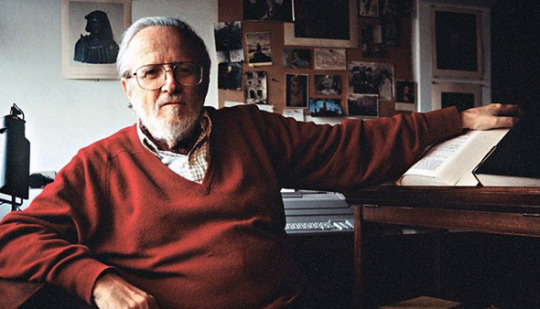
The Boom in Spanish American Literature: A Personal History is Donoso’s chronicle of this multi-generational, multi-cultural revolution of language from one of its earliest advocates and oldest mentors. Throughout this slim, warm memoir, Donoso performs two great tasks: to convince you that the Boom never existed for writers, but that only writers could have produced it. Donoso lays out this paradox in the book’s final pages:
[T]he question of the constitution of the Boom, of who does and who does not belong…. is naïve and false, as false as the notion of stagnation in human and political relations, as false as the idea of perpetual unanimity of opinions… [T]he [Boom] seen from the outside, and the reasons for inclusion or exclusion… are more than anything mirages seen by those who are excluded and who want to belong.
READ MORE
#latin american literature#chilean authors#writers and poets#spanish american literature#jose donoso#librarians#booksellers
3 notes
·
View notes
Text
Yo tengo recuerdos como si tuviera mil años.
Translation: I have memories as if I were a thousand years old.
— Rodrigo Arriagada-Zubieta, 'Extrañeza'
#rodrigo arriagada-zubieta#poetry#latin-american poets#chilean poets#poetry about time#memory and memories#spanish language poetry
0 notes
Text
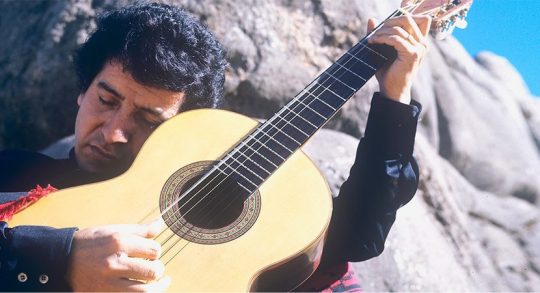
Victor Jara
64 notes
·
View notes
Text
People say that’s what happiness is—when you don’t feel like you should be somewhere else, or someone else. A different person. Someone younger, older. Someone better.
Alejandro Zambra, Chilean Poet (translated by Megan McDowell)
47 notes
·
View notes
Text

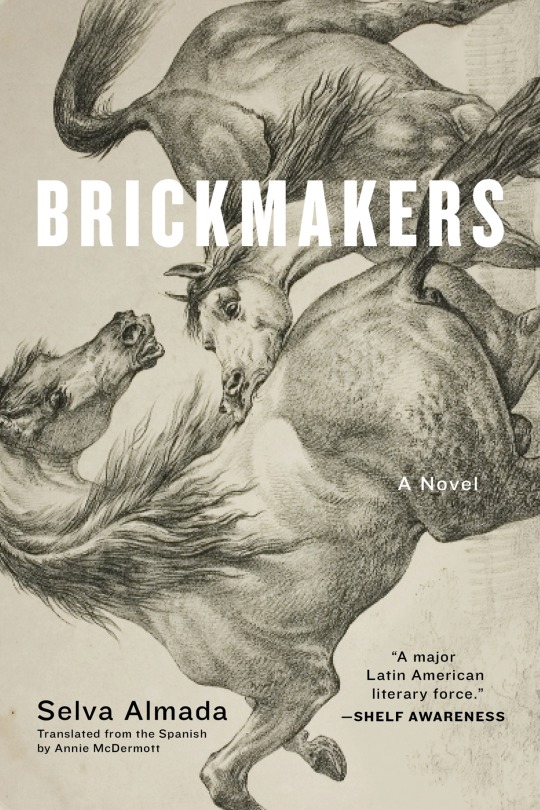
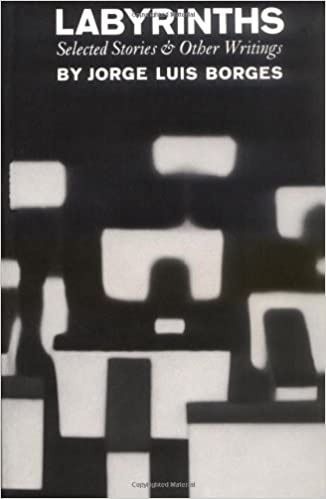
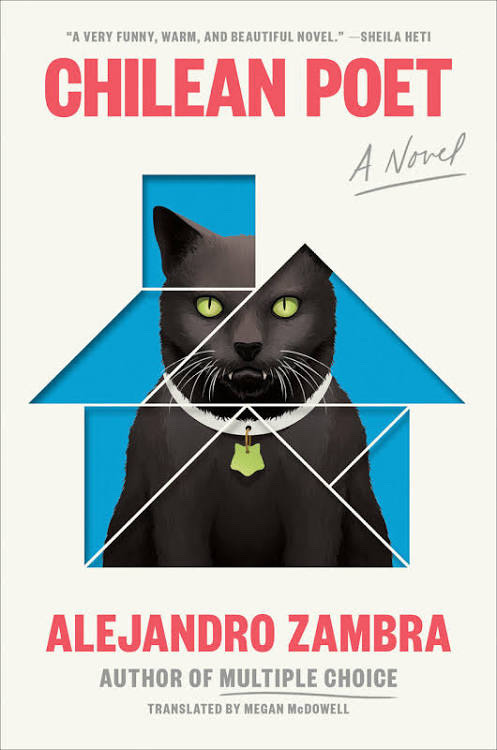

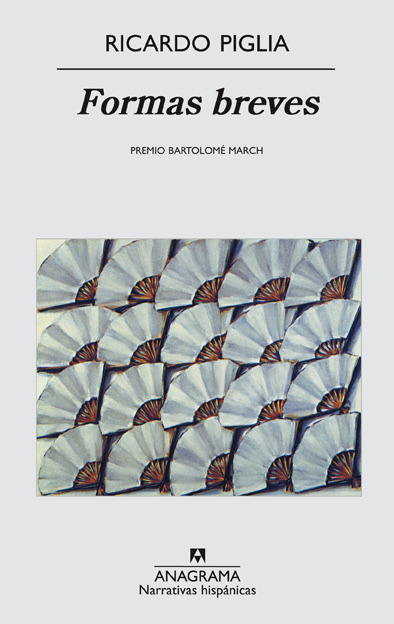

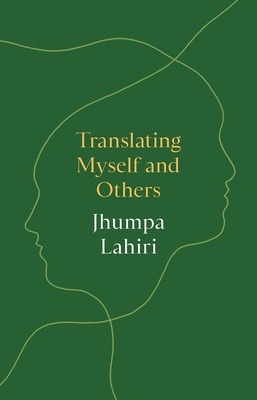

@goosemixtapes tagged me to post my top books of 2022 so far :) ty max ily
1. when i sing, mountains dance by irene solà, translated from the catalan by mara faye lethem - you have all probably seen me mention this book before, but it completely blew me away. it’s loosely centered around two families in the rural pyrenees but the chapters are narrated not only by various characters, but by mushrooms, storm clouds, dogs, etc… it sounds weird but it’s so well-written & translated, so interesting, and the last chapter is incredible. begging everyone to read it. if this gives you any idea of how much i loved it: two months after i finished reading it, i forced my mom to leave my soccer game early & drive to a book fair to hear the author speak & have her sign my copy. i told her it was one of my favorite books ever.
2. brickmakers by selva almada, translated from the spanish by annie mcdermott - this is inspired by r&j and set in rural argentina. it’s violent and painful and a quick read and soooo good. i read it on a plane in one sitting and when i finished it i just had to sit there staring into space for 30 minutes to process it. definitely try & check content warnings if you’re interested (i can also elaborate if needed) but it’s great
3. labyrinths by jorge luis borges, translated by the spanish from [idk and can’t find my copy rn sorry]- man. both my dad and my spanish teacher used to tell me borges was super difficult (and i get it!), which is why i picked this up in english not spanish, but… wow. he’s famous for a reason. the concepts in his stories and essays are incredibly interesting, and it’s definitely something i hope to revisit when i’m older so that i can get more out of it
4. chilean poet by alejandro zambra, translated from the spanish by megan mcdowell- i am an alejandro zambra fan through and through so i was super excited to read this!! probably not my favorite book of his (multiple choice <3) but still very well-crafted, deceptively simply told, and as always… fathers and sons… they get to me
5. los detectives salvajes by roberto bolaño - this book is VERY long and VERY weird, and i don’t know if i genuinely liked it this much or if i just spent so much time with it i got attached. i remember feeling meh for the first ~200 pages, but once i started really thinking about ulises + belano searching the globe for a writer, just as the narrator searches for them, i got into it. it made me want to read 2666 at some point!!
6. formas breves by ricardo piglia - much shorter than los detectives salvajes haha! this was mostly literary criticism/commentary with a little fiction but i genuinely enjoyed it a lot, plus piglia talked about a couple different writers from argentina that i now want to check out! reading list material hehe :)
7. a ghost in the throat by doireann ní ghríofa - i read this way back in early january, so my memory isn’t quite as sharp, but this is sort of a novel-memoir of an author and mother who becomes fascinated by an 18th century irish nobleman/mother/poet (eibhlín dubh ní chonaill). super interesting!!
8. translating myself and others by jhumpa lahiri - i found these collection of essays, most about lahiri’s ideas on translation after beginning to translate from italian, & since i like the concept of translation & translated literature this was fun for me
9. no voy a pedirle a nadie que me crea by juan pablo villalobos - this was another weird one, i’m not gonna lie, but the way in which it’s told is cool & i found the tone — unsettlingly sarcastic and funny, given that it’s literally about a guy getting blackmailed by a criminal organization — fascinating.
i think a lot of ppl have been tagged already but i will tag @tucurui @rothko @metaphysical-cheese @sofyarostova & honestly anyone else if you want to do it!!
#this was honestly hard bc after the first 3 or so i was kind of just making up an order for books i liked#but genuinely#i loved the first two of these soooo much#she speaks.l#tag games#also i kind of rambled on a lotttt hshshhshs#also dee and wren i could not remember if i’d seen you tagged or if you had done this so pls disregard if so?#also if you’re wondering why i didn’t read brixkmakers and chilean poet in spanish. Look.#sometimes i get tired. there’s so much latin american lit i want to read and only so much time and sometimes my brain cannot handle reading#it All in spanish bc it just takes too long!!#but now i do own brickmakers in spanish so i’ve been thinking of rereading it
23 notes
·
View notes
Text
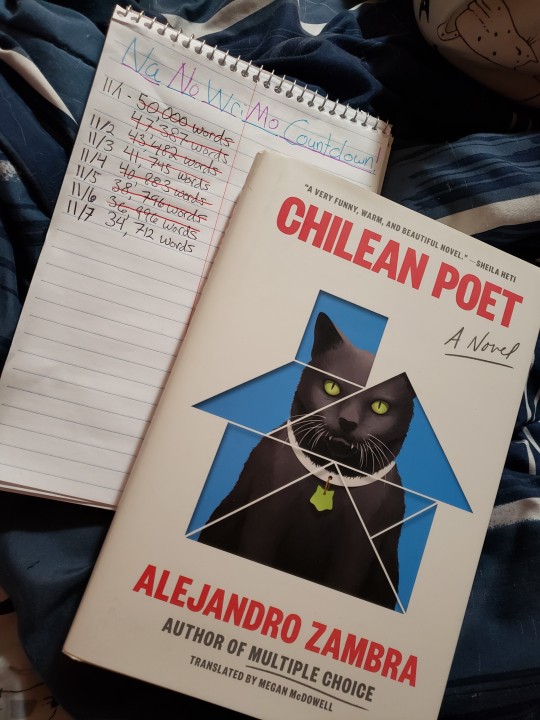
Making good headway on my NaNoWriMo goals, so clocking out a little early to jump into my next book 👀
2 notes
·
View notes